WhatsApp launches multi-device beta with support for end to end encryption
An infrastructure change means up to four devices can be attached to a single account without compromising security or privacy, company claims
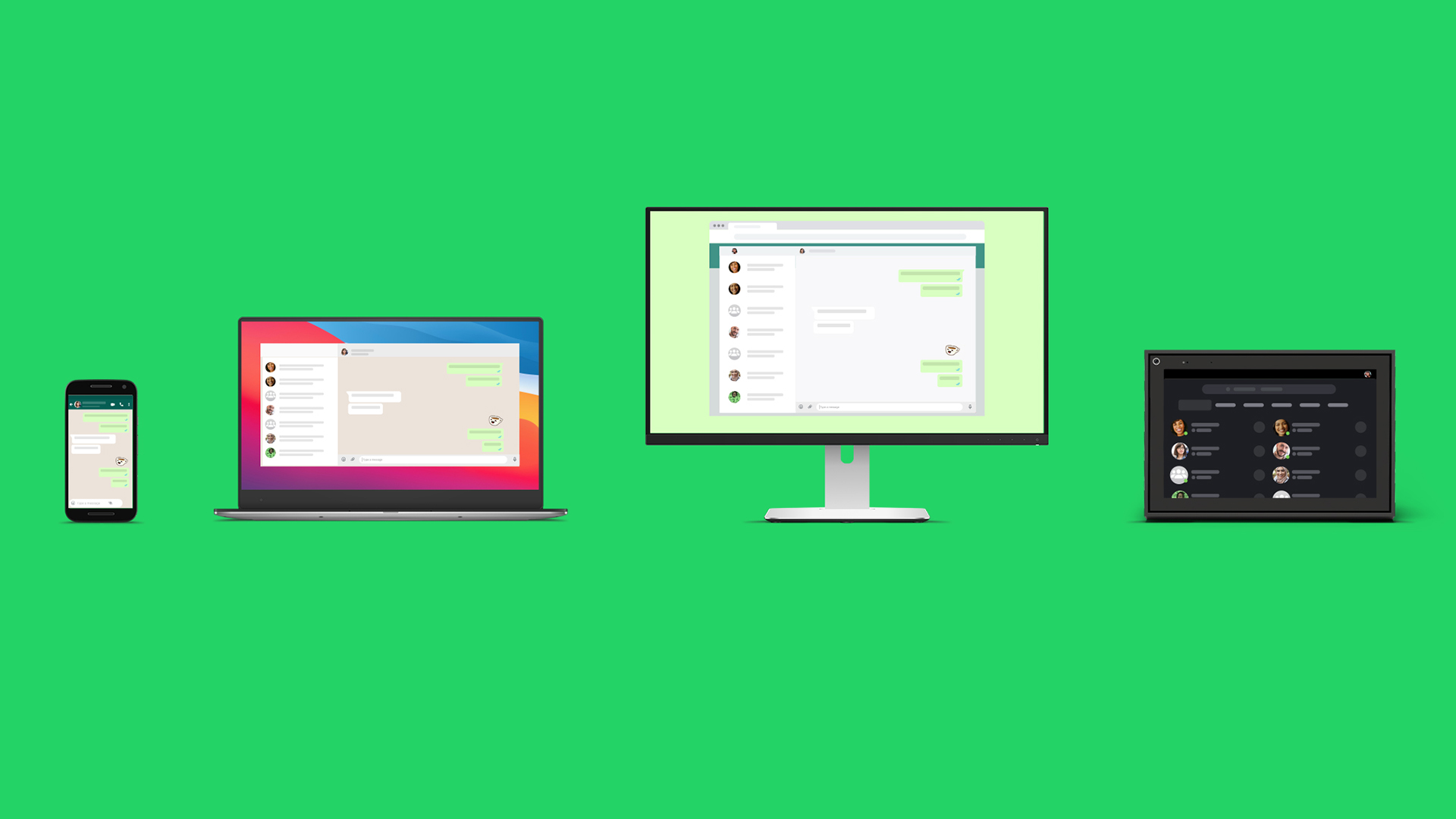

WhatsApp has launched a limited beta test of a new feature that will allow users to run the chat app on up to four different devices simultaneously.
The new feature, which the company claims has required an infrastructure overhaul, will support WhatsApp on a mobile phone and four other non-phone devices, such as a tablet and desktop PC.
To achieve this, the company said it had made significant changes to the platform's architecture for it to work across multiple devices while also supporting end to end encryption.
WhatsApp already has a feature which allows the app to be ported to a desktop machine - be it macOS, Windows, or Portal - but that keeps the user's phone as the "source of truth" or primary device. This is where the desktop maintains a persistent connection with the phone and simply mirrors content from the mobile on screen. If the smartphone runs out of battery, this connection is lost.
To get around this, and maintain its encryption standards, WhatsApp has changed the way it stores user information on its servers and the way it uses identity keys. Previously, keys were attributed to just the user, however WhatsApp servers will now maintain a map of each person's account via their devices.
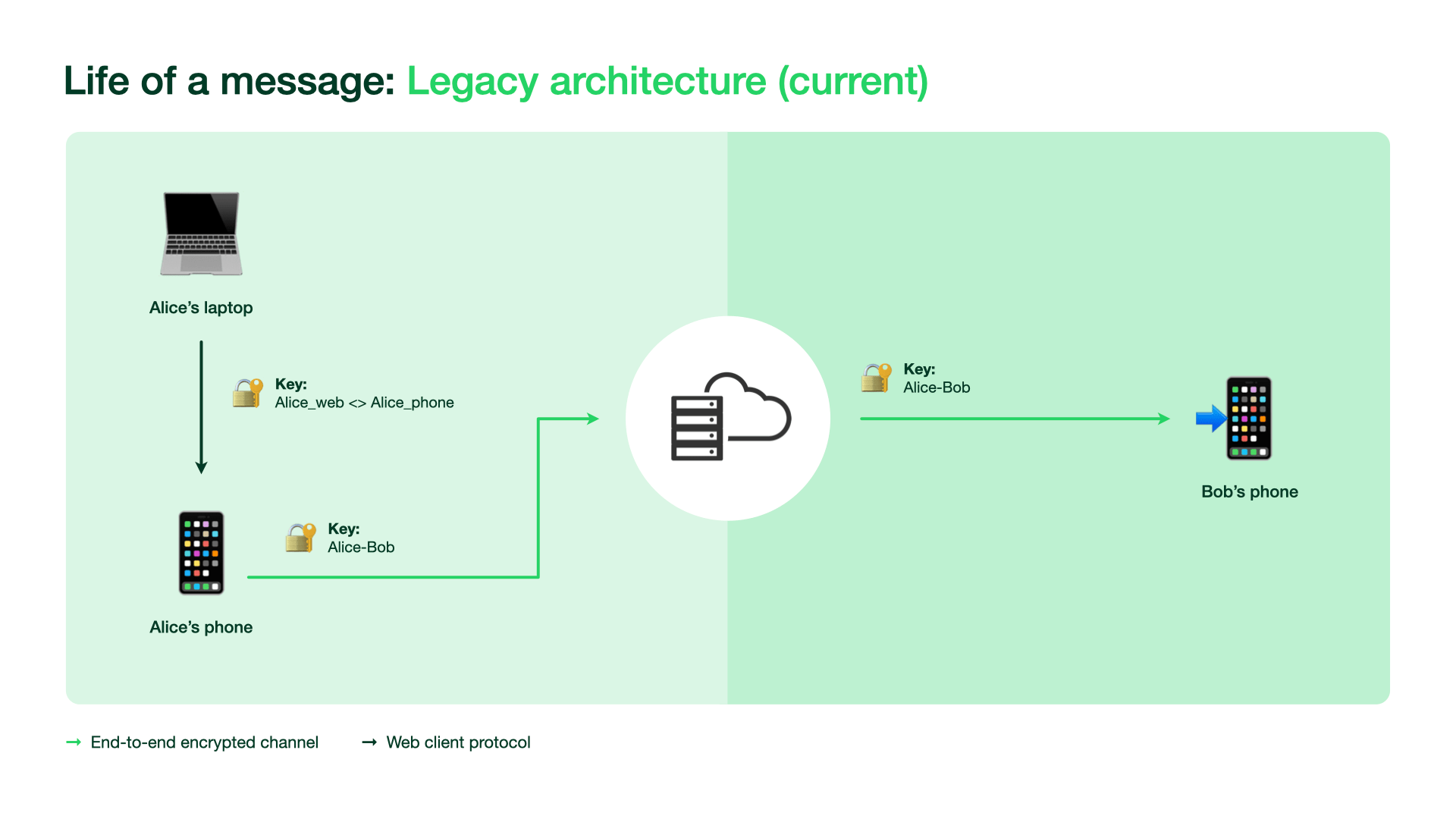
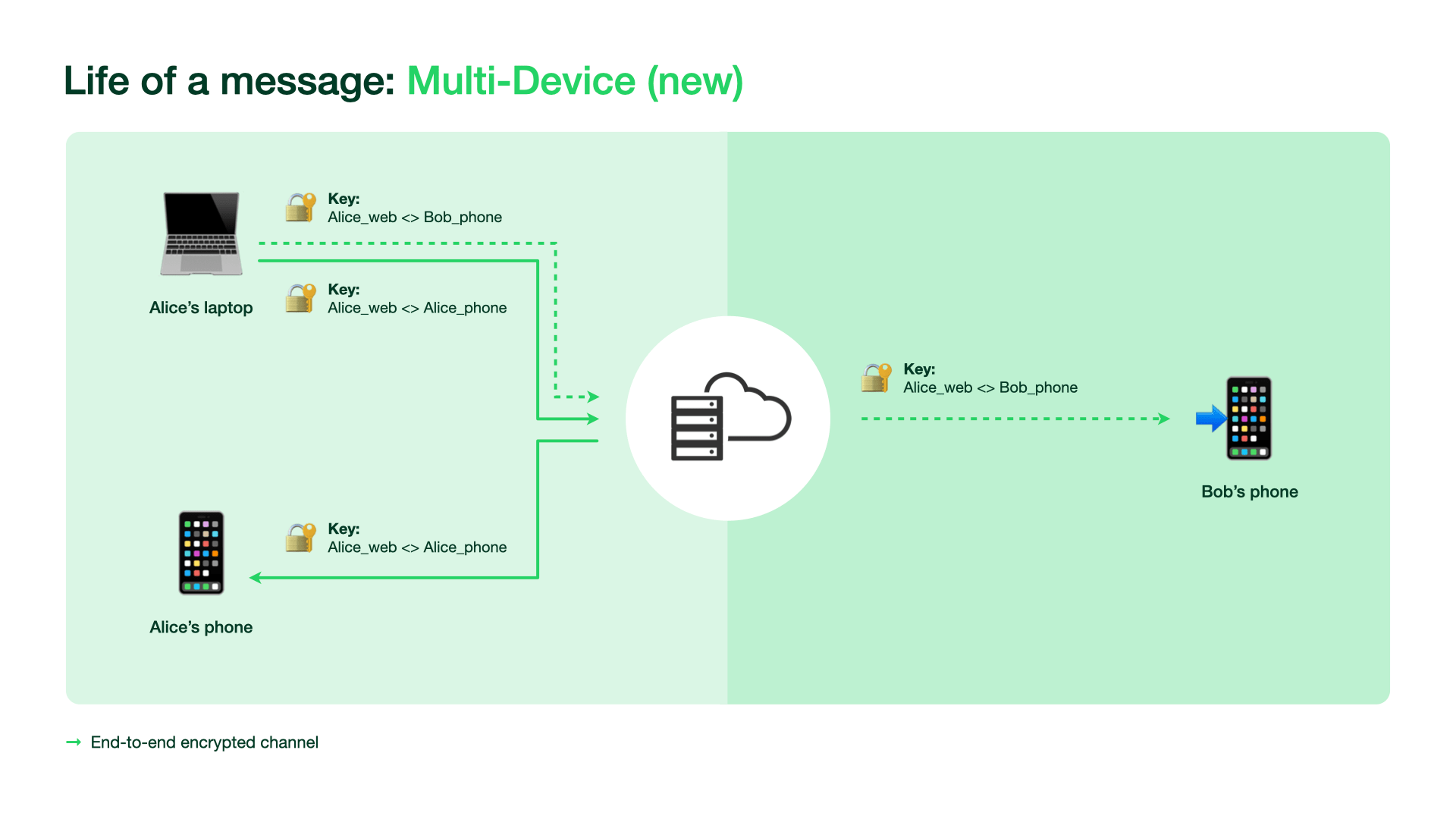
Now, when a user wants to send a message, they will get their device list keys from the server. In order to reduce the number of times they need to perform identity verifications, WhatsApp has added a new system, called Automatic Device Verification, that allows the user's devices to automatically establish trust.
RELATED RESOURCE

How to maximise the value of your data and apps with IaaS
Free yourself from infrastructure complexity
End-to-end encryption is achieved on WhatsApp by placing both sender and receiver into a "pairwise encrypted session" - essentially a secure data plane. For multi-device communications, WhatsApp is adopting a 'client-fanout' approach where the sender encrypts and transmits to each of the receiver's different devices.
Get the ITPro daily newsletter
Sign up today and you will receive a free copy of our Future Focus 2025 report - the leading guidance on AI, cybersecurity and other IT challenges as per 700+ senior executives
Messages are not stored on the server after they are delivered, according to WhatsApp, and groups will still use the same scalable Sender Key encryption scheme from the Signal Protocol.
Adding new devices will still be done through the mobile app, with QR codes, though it will now need biometric authentication. Users will also be able to see which devices are in their accounts and remotely log out of them if needed.
Bobby Hellard is ITPro's Reviews Editor and has worked on CloudPro and ChannelPro since 2018. In his time at ITPro, Bobby has covered stories for all the major technology companies, such as Apple, Microsoft, Amazon and Facebook, and regularly attends industry-leading events such as AWS Re:Invent and Google Cloud Next.
Bobby mainly covers hardware reviews, but you will also recognize him as the face of many of our video reviews of laptops and smartphones.
-
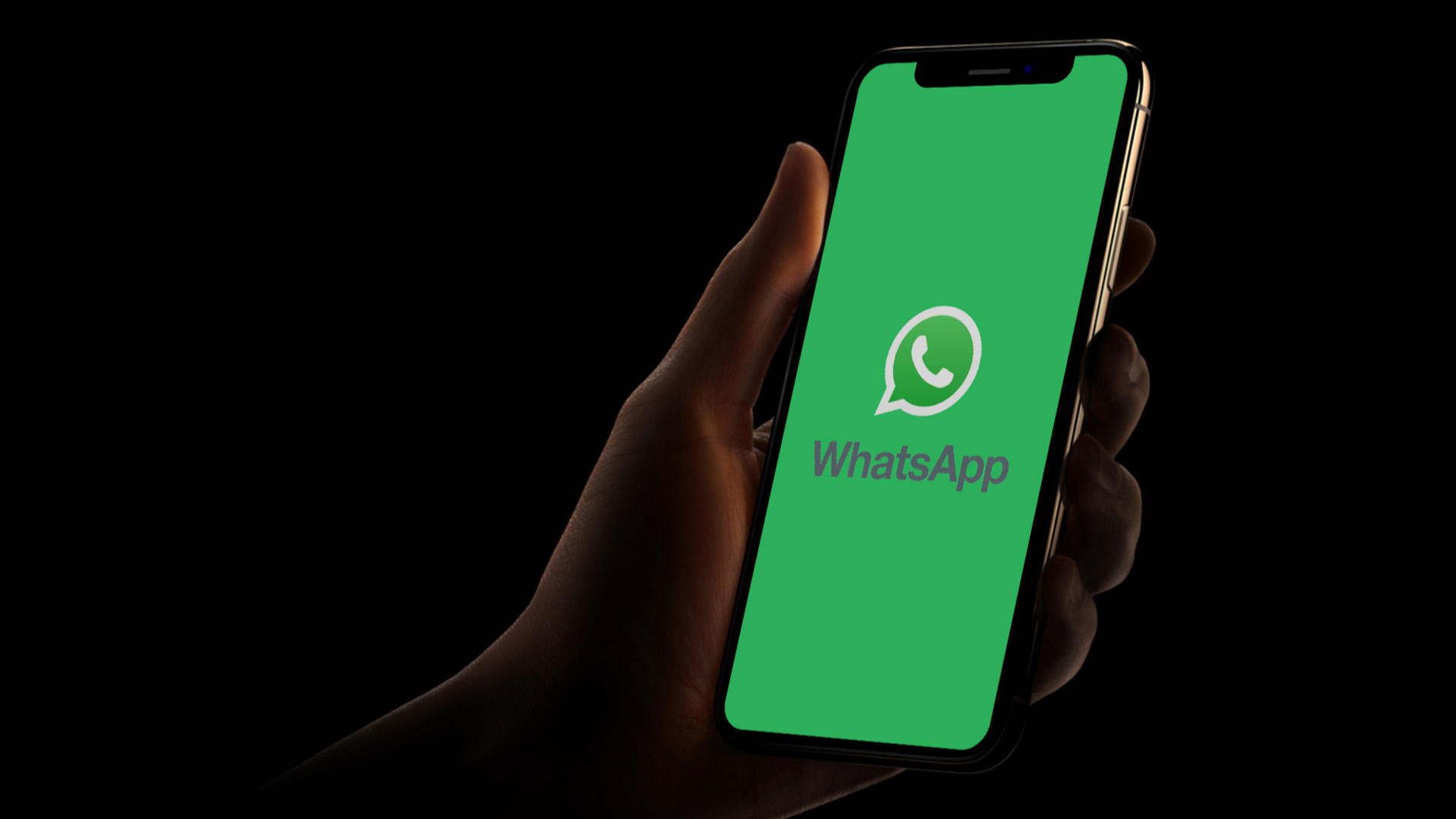 WhatsApp to combat internet blackouts with proxy server support
WhatsApp to combat internet blackouts with proxy server supportNews The newest version of the communication platform offers a new way to bypass state-imposed internet limitations, but concerns remain over IP visibility
By Rory Bathgate
-
 Morgan Stanley fined $200m for "unapproved" WhatsApp use
Morgan Stanley fined $200m for "unapproved" WhatsApp useNews US gov report criticises bank for conducting business via personal channels of communications
By Bobby Hellard
-
 WhatsApp secures permission to challenge €225 million GDPR fine
WhatsApp secures permission to challenge €225 million GDPR fineNews The company has been granted the power to challenge Ireland’s fine over the way it shares user data
By Zach Marzouk
-
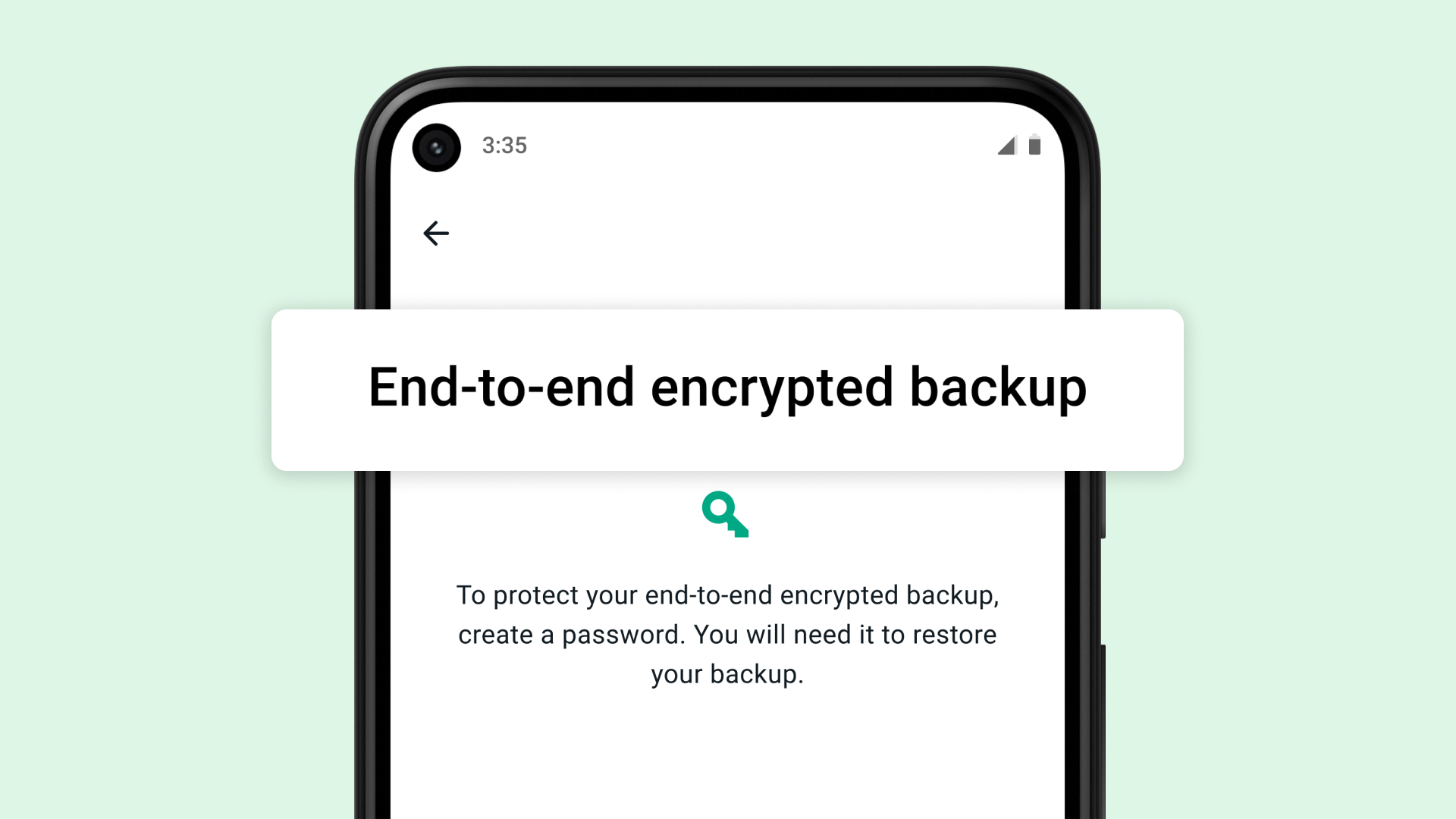 WhatsApp backups to get end-to-end encryption
WhatsApp backups to get end-to-end encryptionNews Facebook says it's the final step towards a full end-to-end encrypted messaging experience on the chat app
By Bobby Hellard
-
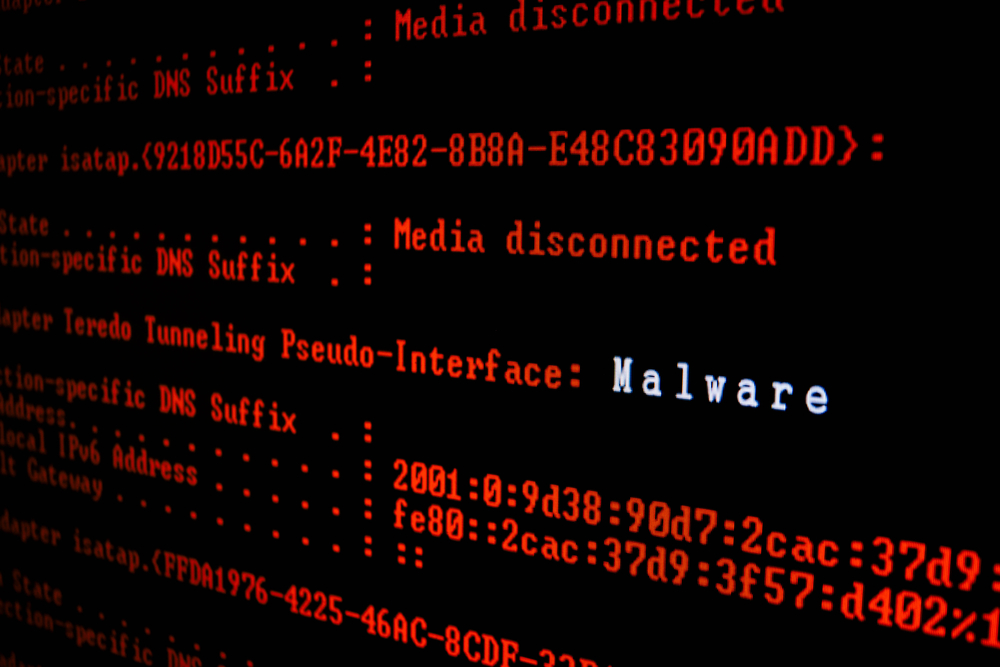 Widely-used WhatsApp mod stuffed with malware
Widely-used WhatsApp mod stuffed with malwareNews FMWhatsApp is embedded with the Triada Trojan which tracks device information and intercepts texts
By Keumars Afifi-Sabet
-
 NSA releases guidance on voice and video communications security
NSA releases guidance on voice and video communications securityNews Failure to secure voice and video calls could lead to hackers snooping
By Rene Millman
-
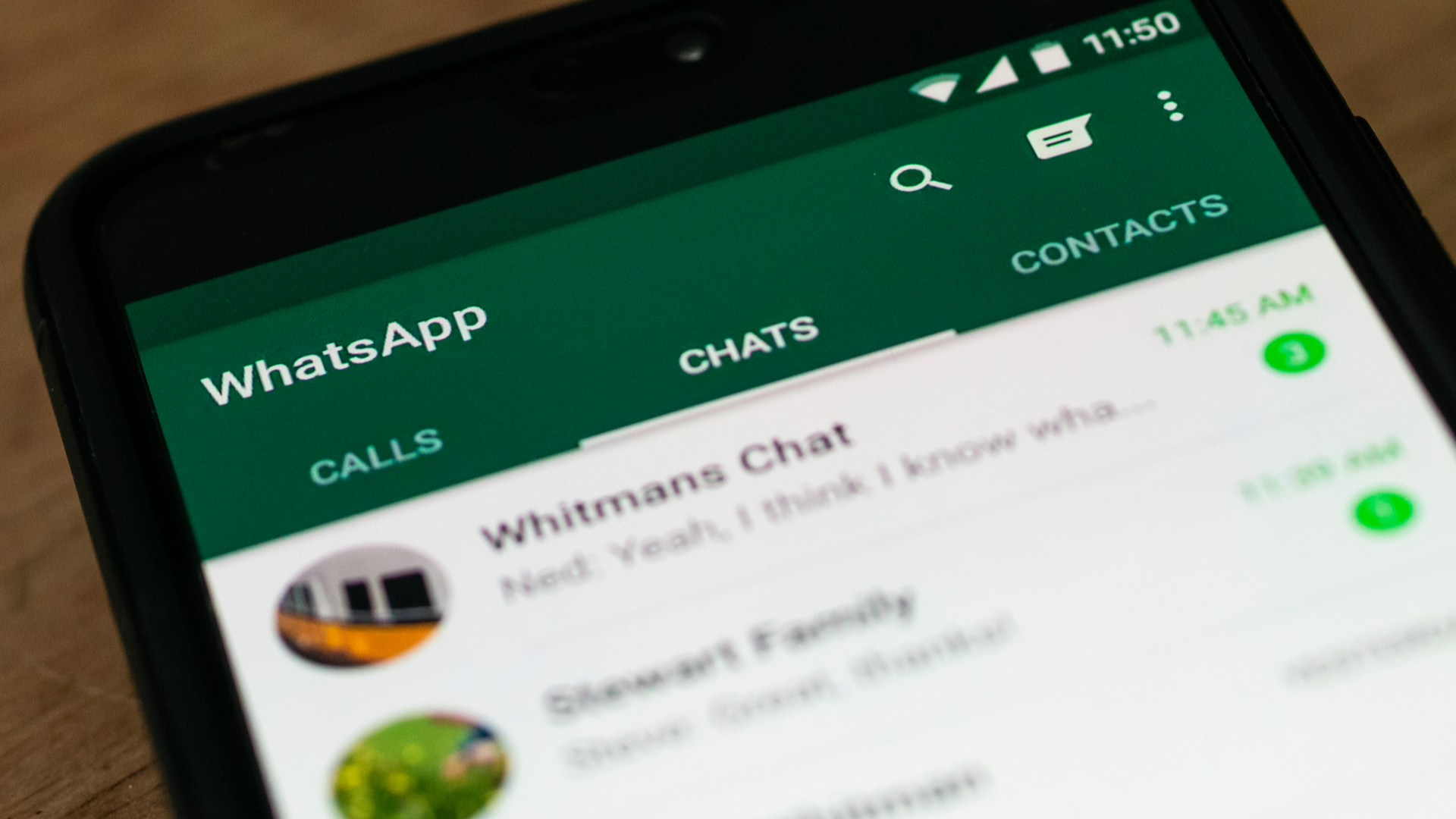 Hackers are using fake messages to break into WhatsApp accounts
Hackers are using fake messages to break into WhatsApp accountsNews Hackers are posing as friends to gain users' trust
By Rene Millman
-
 WhatsApp flaw leaves users open to 'shoulder surfing' attacks
WhatsApp flaw leaves users open to 'shoulder surfing' attacksNews Hackers can gain full access to individual’s WhatsApp accounts using just their phone number
By Keumars Afifi-Sabet

